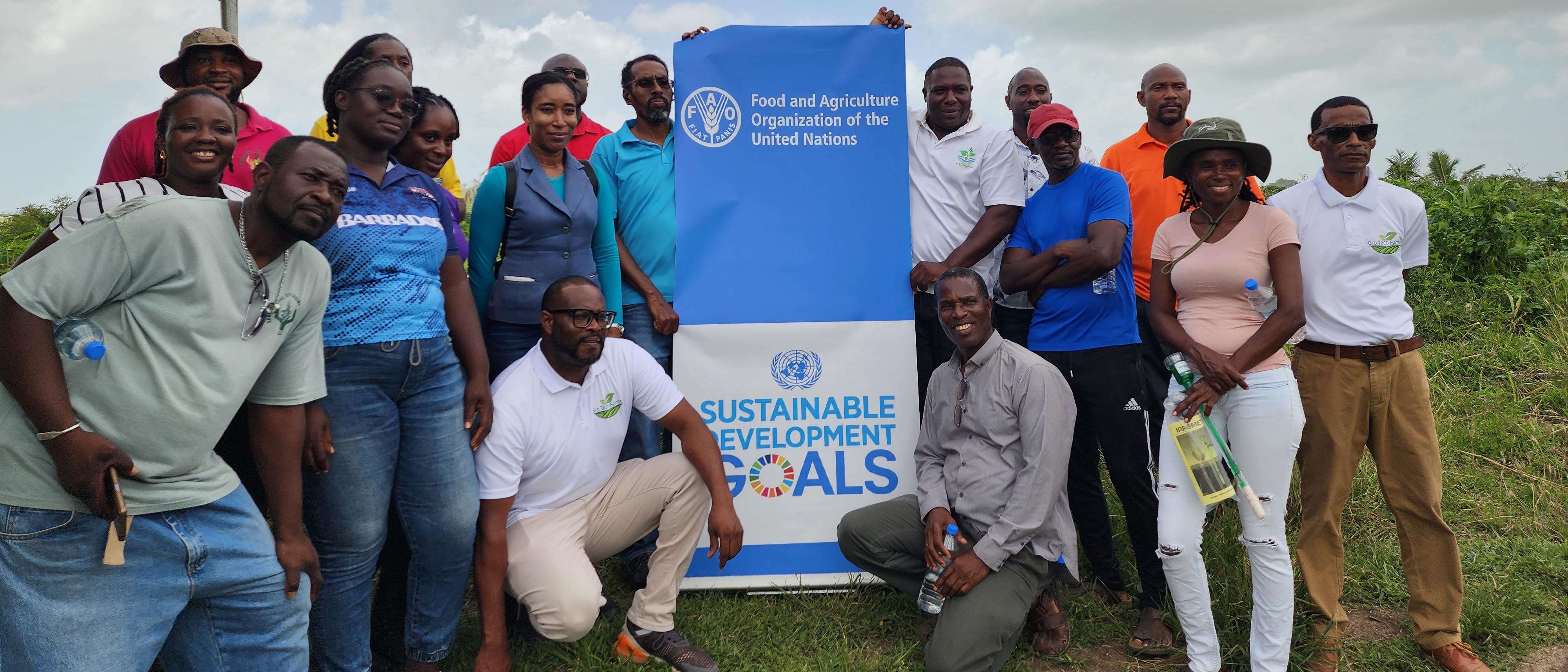Antiguan Farmers trained in the Operation and Maintenance of Solar-powered Drip Irrigation Systems

Participants during the Operations and Maintenance Workshop.
©FAO
St. John’s, Antigua - Antiguan farmers are now better equipped with the knowledge and tools to maintain their solar-powered drip irrigation systems. This is thanks to the FAO-supported training on the operation and maintenance of these innovative systems. The training complements previous capacity-building activities provided by FAO on climate-resilient practices for the sustainable management of water, soil and energy in the farm.
The activity, which took place on April 23 at the Itajah Simmon’s Pepper and Vegetable farm, delved into the ways users can maximise the usage and longevity of their solar-powered drip irrigation systems. The 25 farmers in attendance were all beneficiaries of the Mexico-CARICOM-FAO Initiative “Cooperation for Climate Change Adaptation and Resilience in the Caribbean” or Resilient Caribbean Initiative, for short.
The solar-powered drip irrigation system is designed to harness the abundant energy of the sun. It consists of a bladder with a capacity of 5000 gallons or a tank with a capacity of 1000 gallons, coupled with solar panels and a solar-powered pump, this system represents a paradigm shift in agricultural irrigation. The systems are combined with rainwater harvesting sheds, fully co-financed and built by beneficiary farmers. These combined technologies are being piloted as a climate-resilient solution for agriculture, aimed at increasing water and energy availability while enhancing efficiency in the use of these.
During the training participants learned about the maintenance of the pumps and filter systems and to use tensiometers, which help to measure soil moisture. In addition, participants were allowed to ask any outstanding questions about the functioning of the system, such as how to protect the water bladder from environmental damage. Security was also a key component, as facilitators provided key tips on how to protect their systems against theft.
Mr. Ika Fergus, the national correspondent for FAO, emphasized the broader implications of this initiative for sustainable agriculture. “By promoting water-harvesting techniques and renewable energy use, the project seeks to foster a holistic approach to agricultural development, thereby enhancing food security and livelihoods in the beneficiary countries”. Meanwhile FAO’s National Project Coordinator for Antigua and Barbuda, Auriel Horsford-Hunte stressed the importance of such a training. “It was vital because there was a lot of money invested in the project, both by farmers and the agencies, so we want to ensure the longevity of the systems by teaching farmers and extension officers how to maintain them and ensure that a space was provided where they could ask any questions they had.”
One of the beneficiary farmers at the training, Andy David, spoke of his gratitude for the system. He said “it has been a plus, especially the water bladder, which allows me to be less reliant on water I have to pay for”. Mr. David also expressed a desire to see the project expanded to the benefit of more farmers across Antigua and Barbuda. Another farmer at the training, Shier Williams, says things are going well and she is now able to produce more with the equipment received. “I am now able to plant more because of the bag [water bladder] so I’ve planted okras and it’s the quickest I’ve seen them grow”, she noted.
The training falls under the Resilient Caribbean Initiative’s Water-Energy-Food Nexus Subproject.
Contact
Environment and Climate Change Policy Officer
Food and Agriculture Organization
